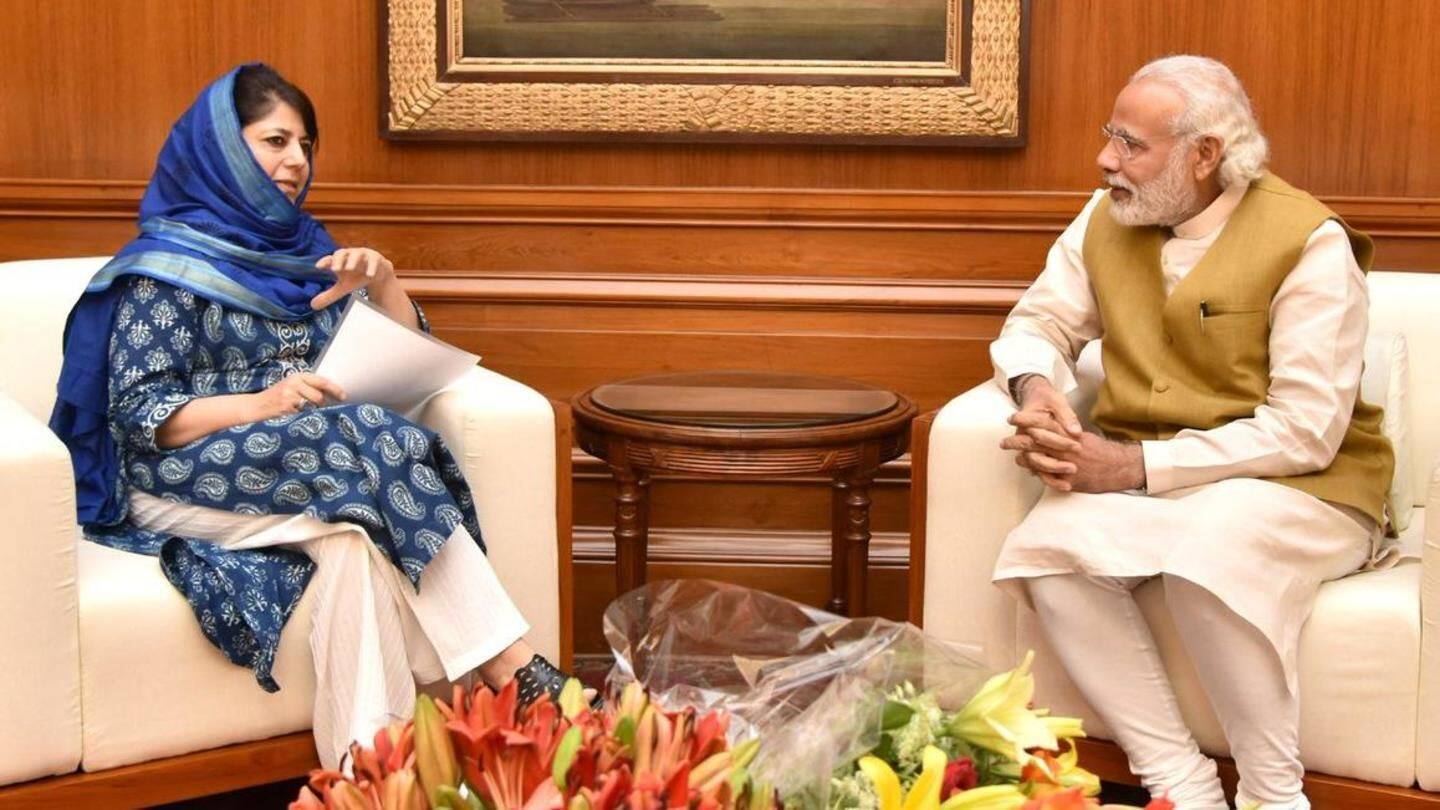
The missing objective of the PDP-BJP alliance
What's the story
Like a square peg in a round hole, the BJP-PDP alliance is an obvious misfit. Their story hitherto has been more about sorting personal/ideological differences, rather than bridging the gap between Hindus and Muslims of Jammu and Kashmir. Lately, the inhumane act of rape on an 8-year-old in Kathua has exposed the fault lines in the alliance, with both the parties accusing each other communally.
Battle on the body
Kathua rape: Contrary stands on inquiry
The rift in the alliance was clear from the demands of the BJP ministers for handing over the Kathua case to CBI, while Mehbooba retorted, "If you don't trust Jammu and Kashmir Police, there is no one left to be trusted in the state." Sadly, the dead girl's body is being used as a political battleground that's being fought on communal front.
Baap-beta, Baap-beti
War of words before elections
Interestingly, during the assembly elections in 2014, both the parties were bitter rivals on opposite planks. Modi's speeches during the campaign called out the evident dynasty politics of the National conference and the PDP, saying, "Kabhi baap-beta ki sarkar, kabhi baap-beti ki sarkar." On the other hand, the PDP demanded votes, claiming it was the only way to keep the BJP out of the state.
Ideological differences
Fractured verdict and the match made in hell
The fractured verdict of the 2014 Jammu and Kashmir assembly elections brought together two parties that are politically antipodal. The PDP won 28 seats in the Muslim-dominated Kashmir region, while the BJP won Kashmir, the Hindu-majority part of the state with 25 seats. "Bringing J&K closer" was often used to substantiate their match made in hell.
Worse than before?
Intensifying divide of the Hindus and the Muslims
The fallacy of the 'alliance' has further aggravated the divide of the state. In 2016, accusing the PDP for giving up on its people and treating them "much worse than Nazi forces," PDP MP Tariq Hameed Karra resigned from Lok Sabha and the party. On the other hand, the BJP ministers have blamed CM Mehbooba for mishandling the Kathua case on communal grounds.
Show of strength
Pressure to prove their respective constituencies
The political support of both the parties is directly proportional to their respective voters. PDP-BJP blaming each other for propagating personal agenda comes from the fact of an increasing pressure to prove their respective constituencies - Muslims in Kashmir and Hindus in Jammu. Both are trying to convince their voters of being non-negotiable on their agenda and ideology, hence bolting the divide furthermore.
Quote
Dysfunctional alliance at best: Siddiq Wahid, Political commentator
"The PDP is much too weak because of internal incompetence and external domination. The BJP is weak because of internal over-confidence. The coalition witnessed the law of diminishing returns early on and today it is a dysfunctional alliance at best," said Siddiq Wahid, a political commentator.
Bringing J&K closer?
Three years left: What to expect?
With three more years to go, BJP and PDP are looking to maximize their number in the next elections, which gives away the possibility of dissolving the coalition in the near future, but Kathua verdict can be a game-changer. That said, in the run up to elections, polarization may worsen, bridging further divide between communities, contrary to "Bringing J&K closer" narrative of the alliance.